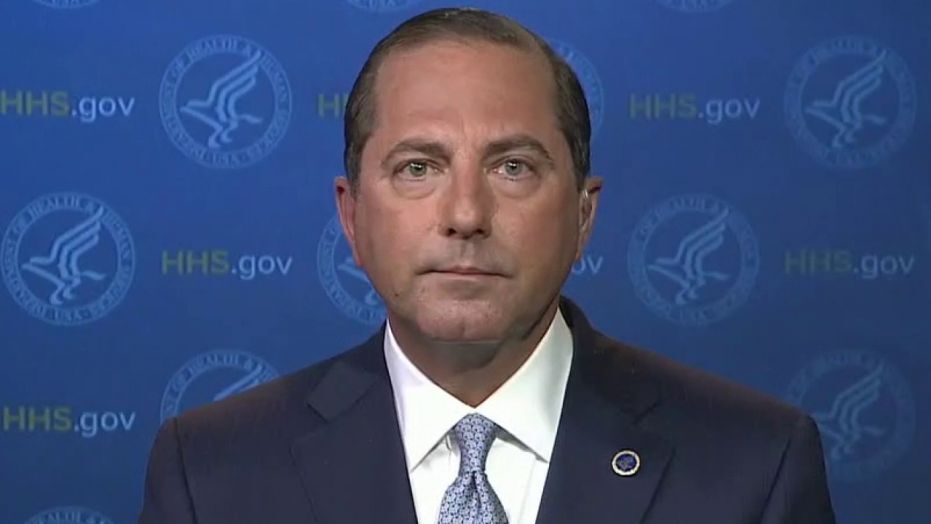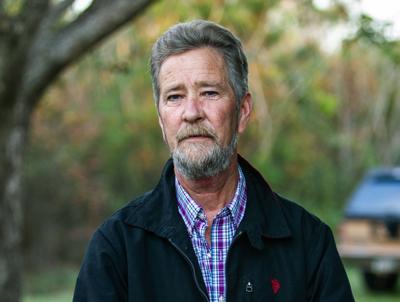Advertisement

WASHINGTON — On a steamy afternoon in late May, Judy Shelton was camped out in the lobby of the Trump Hotel in Washington, holding court with reporters from her perch on a high-backed couch.
She had chosen the location, a symbolic backdrop for a big moment in her career. Her name had surfaced as being under consideration for one of two open seats on the seven-member Federal Reserve Board of Governors. For a proponent of the gold standard who has spent a career criticizing the Fed, a nomination offered a chance to shape the institution from within.
Ms. Shelton, 65, has spent years positioning herself, penning opinion pieces and tweets praising President Trump’s policies, from tariffs to tax cuts. She was an adviser to his campaign and served on his transition team.
But before nabbing the Fed job, Ms. Shelton made a final transformation, publicized partly from the air-conditioned calm of the hotel atrium. Long a critic of low interest rates, Ms. Shelton now said they should drop, potentially to zero — a pivot that made headlines and put her in line with Mr. Trump, a cheap-money devotee.
Mr. Trump announced on Tuesday that he would nominate Ms. Shelton as a Fed governor, along with Christopher Waller, who is research director at the Federal Reserve Bank of St. Louis. Both are likely to support low borrowing costs.
But the way Ms. Shelton is making her newfound argument for low interest rates may be particularly consequential, because it intensifies her assault on a business-as-usual belief at the Fed.
Ms. Shelton wants to cut rates as a way of phasing out the Fed’s practice of paying banks interest on excess money parked at the central bank. The Fed changes the rate it pays banks on reserves as a tool to guide its benchmark interest rate higher, a practice it adopted in the wake of the financial crisis.
The approach has long been a political lightning rod, because it rewards banks for leaving money sitting at the Fed. Criticism of the practice has faded somewhat, but Ms. Shelton’s nomination could reignite it.
“It really gets into the arcane dark arts of making monetary policy,” said Mark Spindel, an author of a book on the politics of the Federal Reserve. “It will resonate.”
Like many of Ms. Shelton’s policy views, her thoughts on excess reserves are not fully consistent with what Mr. Trump says he wants.
The president has said the Fed should lower rates, stop shrinking its balance sheet and start expanding it again by buying more bonds — a practice that’s often called quantitative easing or Q.E.
Ms. Shelton’s plan would involve the Fed dropping rates to zero. But to ditch paying interest on reserves, the Fed would also need to slash its bond holdings, because the old rate-setting system does not work when there is a lot of money sloshing around the financial system.
In other words: The country can have its old operating framework or a big balance sheet, but probably not both.
“If you’re in favor of Q.E., then presumably you’re in favor of interest on excess reserves — it’d be hard to argue how you could do one without the other,” said William Dudley, former president of the Federal Reserve Bank of New York. The current system will make it easier for the Fed to go back to buying bonds should the economy enter another downturn, he said, leaving policy more nimble. It also makes setting interest rates easier.
Such arguments have failed to placate lawmakers in the past. In a rare show of bipartisan sentiment in February 2016, Jeb Hensarling, then the Republican chairman of the House Financial Services Committee, and Maxine Waters, the top Democrat on the panel, criticized Janet L. Yellen, the Fed chair at the time, for the practice. Ms. Waters walked her critiques back, but in 2017, Mr. Hensarling again urged that it “should not become a permanent tool of monetary policy.”
Lawmakers have stopped blasting the practice so loudly since Jerome H. Powell took over at the central bank in early 2018. The Fed announced this year that it would continue using the interest-on-reserves approach to setting interest rates indefinitely — allowing officials to stop shrinking their balance sheet earlier.
But it has always been a delicate issue, and Ms. Shelton could bring it back into the limelight.
“She’s got a top step of the podium to readdress these things,” Mr. Spindel said.
The Fed has operational freedom, which means that Congress sets its goals — full employment and low and stable prices — but the Fed chooses how to achieve them. Politics should not matter. But practically, Congress could change the Federal Reserve Act if monetary policy drew enough ire. And the Fed’s independence is already under pressure as Mr. Trump regularly criticizes Mr. Powell and his colleagues.
[Read a rundown of Mr. Trump’s ongoing feud with the Fed.]
“The Federal Reserve should be independent and think long term,” said Senator Tina Smith, Democrat of Minnesota and a member of the Senate Banking Committee, which will vet Ms. Shelton and Mr. Waller. Because Mr. Trump has taken aim at the central bank, she said, “these nominees will get additional scrutiny.”
Mr. Trump’s last two favorites for the Fed, the pundits Stephen Moore and Herman Cain, never made it to formal nomination because they lacked support among Senate Republicans.
Ms. Shelton is more than a political ally of Mr. Trump’s: She is a Fed critic who wants to overhaul the United States’ monetary system. She was a co-leader of the Sound Money Project before the Trump administration nominated her to her current job as the United States executive director at the European Bank for Reconstruction and Development, and has spent her career making a case for a hard currency peg.
“Money is a moral contract between the government and individual citizens,” Ms. Shelton said at the Trump Hotel in May. “Someone called me a gold bug — what would I rather be? A Fed bug?”
Her views are at odds with both the economic mainstream and America’s monetary system. The United States ended dollar convertibility to gold in 1971 as foreign holdings of dollars outstripped America’s gold reserves, threatening a run. The United States had discovered that it could not be the global reserve currency and at the same time run a gold-backed monetary system.
Dollars now derive their value from the federal government’s backing. Ms. Shelton has argued that returning to a fixed-currency peg would create a more even playing field for international trade and prevent central banks like Japan’s from buying up government debt to help cheapen the national currency and make exports competitive.
“The notion that free trade should be based on stable exchange rates so that goods and capital flow in accordance with free-market principles has been abandoned by technocrat elitists who simultaneously extol the benefits of globalization,” Ms. Shelton wrote in a Wall Street Journal opinion article in February 2017.
Mr. Trump has also voiced veiled support for the gold standard in the past, saying before the 2016 election that “bringing back the gold standard would be very hard to do, but boy, would it be wonderful.”
It is questionable that a fixed exchange standard would work in 2019. Other countries would need to agree on a standard for convertibility. Tying currencies to a commodity would risk exposing economies to arbitrary price swings.
If the Fed were tasked with targeting a commodity price, it could no longer focus concertedly on steadying overall prices and stabilizing the job market, as it currently does. Mainstream economists are practically unanimous in agreeing that a gold-fixed currency would be worse for everyday Americans.
“You have to basically subordinate your monetary policy to exchange rates,” Mr. Dudley said. “You’re subordinating your goals of price stability and unemployment to other goals.”
A version of this article appears in print on , on Page B1 of the New York edition with the headline: Cheap-Money Convert May Push Fed to Scrap a Rate-Setting Tool. Order Reprints | Today’s Paper | Subscribe


